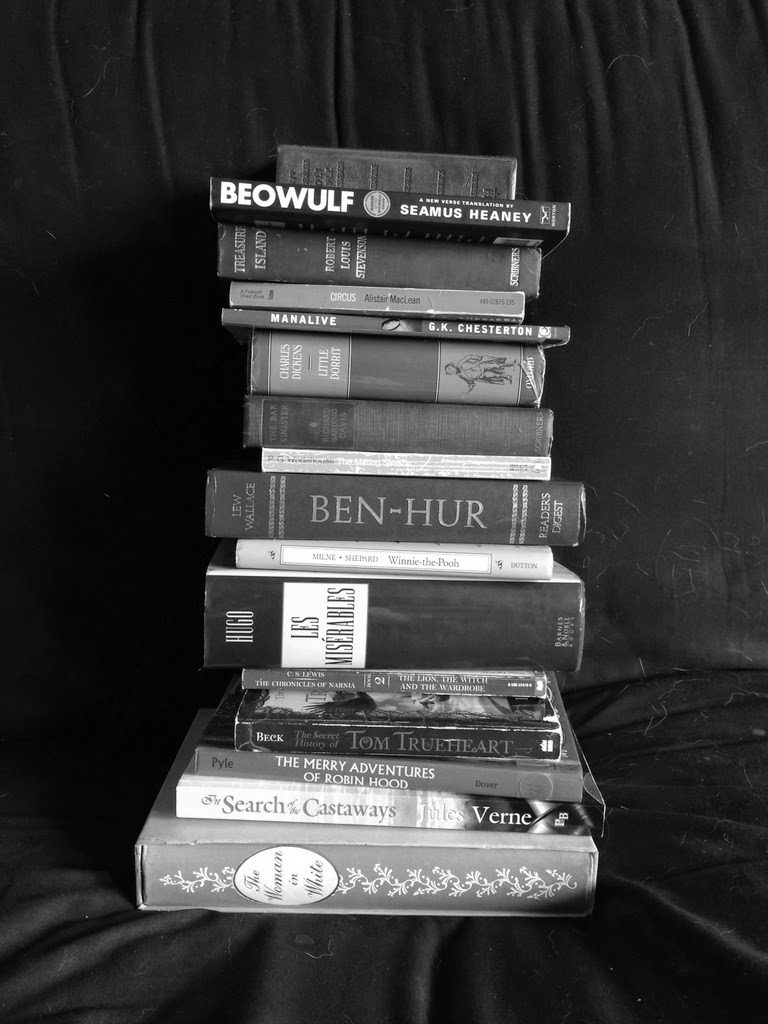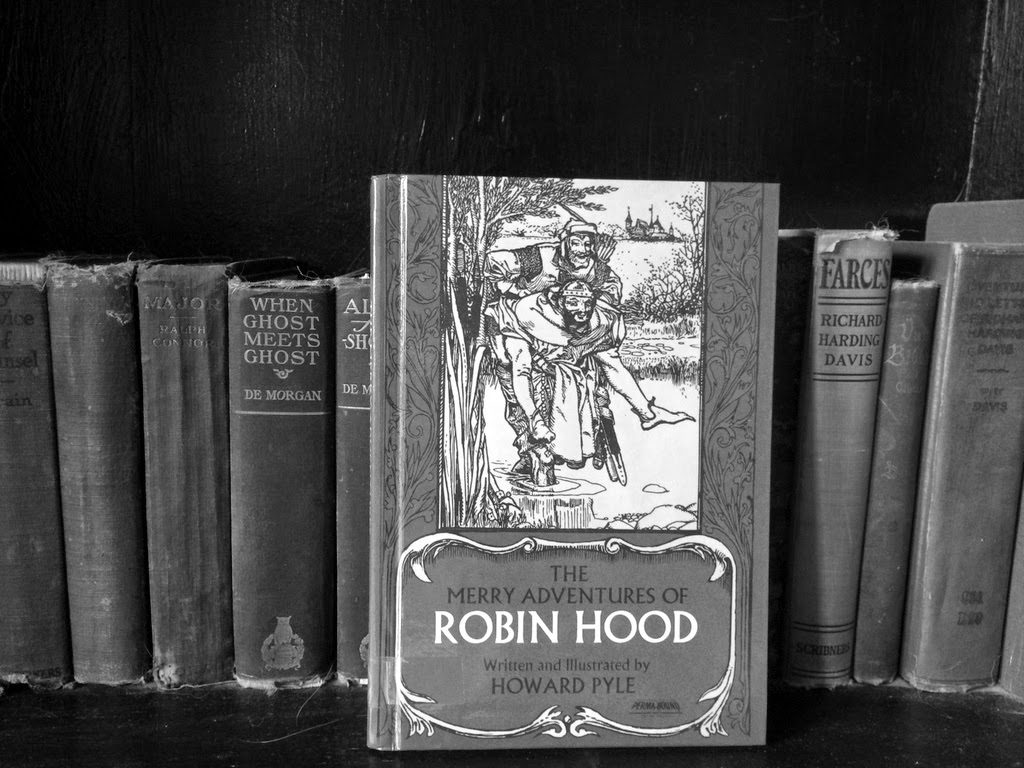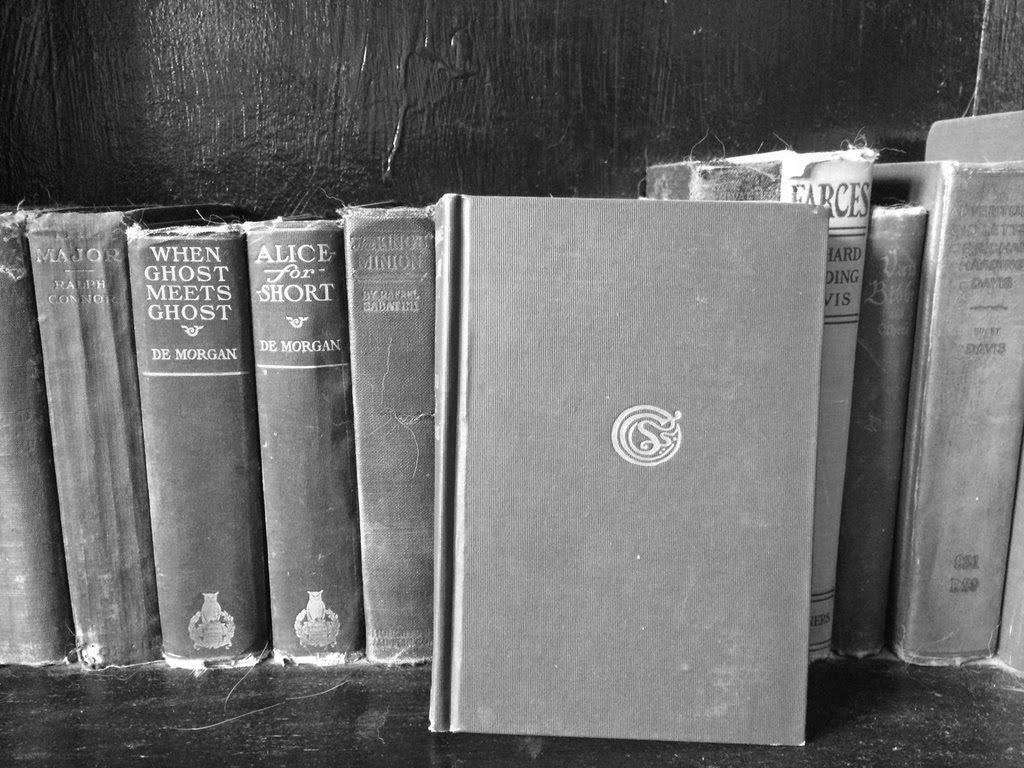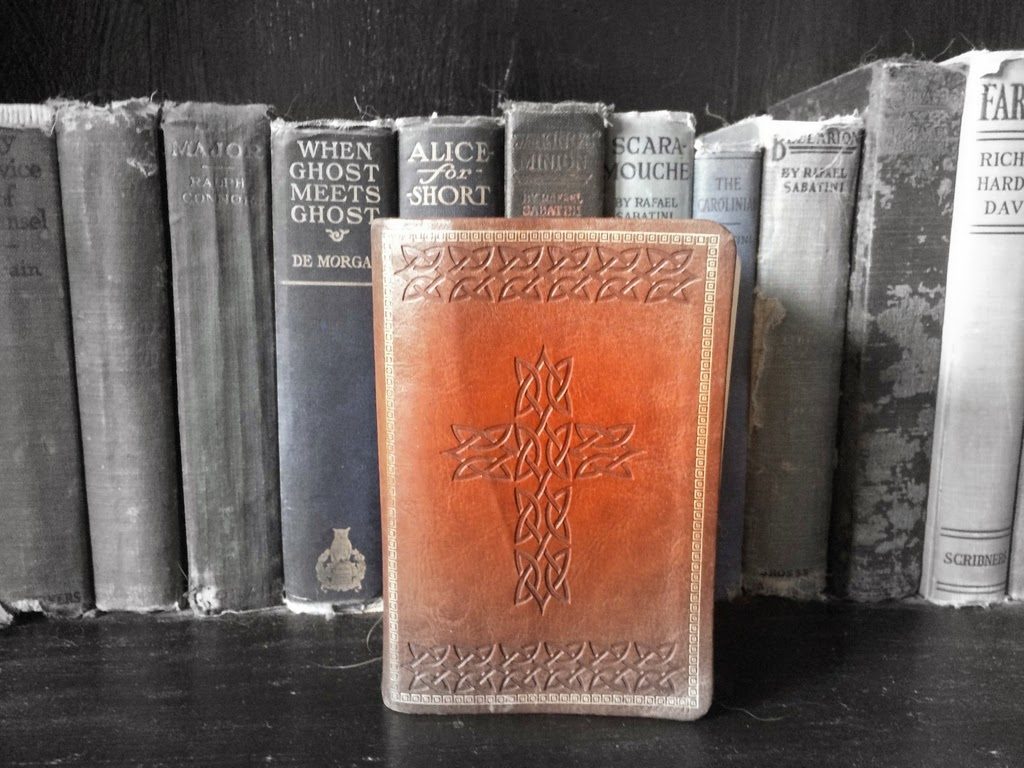“Here is Edward Bear,
coming downstairs now, bump, bump, bump, on the back of his head, behind
Christopher Robin[1].”
coming downstairs now, bump, bump, bump, on the back of his head, behind
Christopher Robin[1].”
“Don’t judge a book by its cover,” everyone says. But what
about its first line? The first line is what makes me decide to go on or put it
down and reach for another book. If the first line is really a smashing good
line, I decide to savor the words, and don’t go on to my usual step two in
looking over a new book; skimming over the first paragraph to see if it gets
interesting later. Of course the older authors often deleted the second step by
the simple act of making their first line the first paragraph.
about its first line? The first line is what makes me decide to go on or put it
down and reach for another book. If the first line is really a smashing good
line, I decide to savor the words, and don’t go on to my usual step two in
looking over a new book; skimming over the first paragraph to see if it gets
interesting later. Of course the older authors often deleted the second step by
the simple act of making their first line the first paragraph.
“Squire Trelawney, Dr.
Livesey, and the rest of these gentlemen having asked me to write down the
whole particulars about Treasure Island, from the beginning to the end, keeping
nothing back but the bearings of the island, and that because there is still
treasure not yet lifted, I take up my pen in the year of grace 17-, and go back
to the time when my father kept the ‘Admiral Benbow’ inn, and the brown old
seaman, with the sabre cut, fist took up his lodging under our roof[2].”
Livesey, and the rest of these gentlemen having asked me to write down the
whole particulars about Treasure Island, from the beginning to the end, keeping
nothing back but the bearings of the island, and that because there is still
treasure not yet lifted, I take up my pen in the year of grace 17-, and go back
to the time when my father kept the ‘Admiral Benbow’ inn, and the brown old
seaman, with the sabre cut, fist took up his lodging under our roof[2].”
I love books. I adore good books. Today I decided to pull a
stack of a few favorites off my shelf and look at the first lines of each. See
how many you know.
stack of a few favorites off my shelf and look at the first lines of each. See
how many you know.
They are all so different! But each one has the distinct flavor
of the book. It sets a scene, and a feeling, and informs you what to expect if
you do go on. A good first line tends to excite me, even if it is not an
exciting kind of book, because it means I have a new story to devour.
of the book. It sets a scene, and a feeling, and informs you what to expect if
you do go on. A good first line tends to excite me, even if it is not an
exciting kind of book, because it means I have a new story to devour.
“On the 26th
of July, 1864, a magnificent yacht was steaming along the North Channel at full
speed, with a strong breeze blowing from the N. E.[4]”
of July, 1864, a magnificent yacht was steaming along the North Channel at full
speed, with a strong breeze blowing from the N. E.[4]”
From that, we know this is going to be a book where we get
lots of boring, needless information like dates and which
way the wind is blowing. But we also know it is going to be a book about
traveling, and ships, and we will probably learn something we didn’t know. That
sounds like a treat!
lots of boring, needless information like dates and which
way the wind is blowing. But we also know it is going to be a book about
traveling, and ships, and we will probably learn something we didn’t know. That
sounds like a treat!
I hear a deliberately old fashioned opening, a mention of
stories, and a good name. Yes, I am hooked to read on. I don’t learn much from this first line, but I am interested nonetheless. Sometimes a first line
can bring up simple interest to see what the story is about, or sometimes it
can bring a smile, and a desire to find more smiles along the way.
stories, and a good name. Yes, I am hooked to read on. I don’t learn much from this first line, but I am interested nonetheless. Sometimes a first line
can bring up simple interest to see what the story is about, or sometimes it
can bring a smile, and a desire to find more smiles along the way.
“While I would not go
so far, perhaps, as to describe the heart as actually leaden, I must confess
that on the eve of starting to do my bit of time at Deverill Hall I was definitely
short on chirpiness[6].”
so far, perhaps, as to describe the heart as actually leaden, I must confess
that on the eve of starting to do my bit of time at Deverill Hall I was definitely
short on chirpiness[6].”
First lines give you an idea of what you are getting into.
But after you have gotten into them, the first line of a book you have loved
for years feels like the hug of an old friend. It elicits the same delightful
hominess and expectation of fun times ahead as it rolls over your tongue.
But after you have gotten into them, the first line of a book you have loved
for years feels like the hug of an old friend. It elicits the same delightful
hominess and expectation of fun times ahead as it rolls over your tongue.
It feels so warm and right after you already love the book.
And the books you loved as a child are in an entirely different category. Those
stories you read over, and over, in between skinning your knees and eating
popsicles, bring an automatic smile to your face and a little spark to your eye.
And the books you loved as a child are in an entirely different category. Those
stories you read over, and over, in between skinning your knees and eating
popsicles, bring an automatic smile to your face and a little spark to your eye.
“In merry England in
the time of old, when good King Henry the Second ruled the land, there lived
within the green glades of Sherwood Forest, near Nottingham Town, a famous
outlaw whose name was Robin Hood[8].”
the time of old, when good King Henry the Second ruled the land, there lived
within the green glades of Sherwood Forest, near Nottingham Town, a famous
outlaw whose name was Robin Hood[8].”
The first line of a well-loved book has the power to
transport you back to the last time you read it. Yes, time travel is perfectly
possible, just so long as you use the confines of your own mind and a good
book. Curl up in a chair and you can go anywhere, they say, and they are right.
But you don’t always know where you’re going when you begin the journey.
transport you back to the last time you read it. Yes, time travel is perfectly
possible, just so long as you use the confines of your own mind and a good
book. Curl up in a chair and you can go anywhere, they say, and they are right.
But you don’t always know where you’re going when you begin the journey.
“The Jebel es Zubleh
is a mountain fifty miles and more in length, and is so narrow that its tracery
on the map give it a likeness to a caterpillar crawling from the south to the
north[9].”
is a mountain fifty miles and more in length, and is so narrow that its tracery
on the map give it a likeness to a caterpillar crawling from the south to the
north[9].”
I would never guess I could be taken from a boring, strange
mountain to beholding my Savior in all His saving might through another man’s
eyes. But that is exactly what happens. And I wouldn’t have it begin any other
way. A book has the power to send us on adventures that we would hope never to
actually get into ourselves. And part of the fun is trying to guess from that
first tiny tid-bit in the first line where it is taking us.
mountain to beholding my Savior in all His saving might through another man’s
eyes. But that is exactly what happens. And I wouldn’t have it begin any other
way. A book has the power to send us on adventures that we would hope never to
actually get into ourselves. And part of the fun is trying to guess from that
first tiny tid-bit in the first line where it is taking us.
“’If you were a
genuine Army Colonel,’ Pilgrim said, ‘Instead of one of the most bogus and
unconvincing frauds I’ve ever seen, you’d rate three stars for this[10].”
genuine Army Colonel,’ Pilgrim said, ‘Instead of one of the most bogus and
unconvincing frauds I’ve ever seen, you’d rate three stars for this[10].”
A first line is a powerful thing. It darts out of a book and
wraps around your mind. If you dare to crack a book open and look at the first
chapter, you will read the first line. And then what will you find? Is it adventure,
humor, a simple fact, or a feeling that is suddenly transplanted from the page
directly into you? Whatever it may be, once read it is a part of you, and there
is nothing you can do to get rid of it.
wraps around your mind. If you dare to crack a book open and look at the first
chapter, you will read the first line. And then what will you find? Is it adventure,
humor, a simple fact, or a feeling that is suddenly transplanted from the page
directly into you? Whatever it may be, once read it is a part of you, and there
is nothing you can do to get rid of it.
Be careful cracking open the cover of a book, because you
never know what that first line might be. And be careful, the next time you are
sitting with a blank white sheet in front of you and considering starting your
next story; the first line written will be the first line read. A silly thing to
say? It is until you think about what a first line is capable of. It can either
draw a reader in, or make them yawn and push your volume away.
never know what that first line might be. And be careful, the next time you are
sitting with a blank white sheet in front of you and considering starting your
next story; the first line written will be the first line read. A silly thing to
say? It is until you think about what a first line is capable of. It can either
draw a reader in, or make them yawn and push your volume away.
“A wind sprang high in
the west like a wave of unreasonable happiness and tore eastward across
England, trailing with it the frosty scent of forests and the cold intoxication
of the sea[12].”
the west like a wave of unreasonable happiness and tore eastward across
England, trailing with it the frosty scent of forests and the cold intoxication
of the sea[12].”
Take a moment to read a first line on its own and see what
it does. It is a story starter, a scene setter, an emotion evoker, and a
crooked finger whispering ‘come closer and read on.’ Kind of creepy? Then stop
thinking about it, and just read on. But if you are trying to write a story, do
stop and think about it. And then go reread your first line, and let it do for
you what it will do for your readers.
it does. It is a story starter, a scene setter, an emotion evoker, and a
crooked finger whispering ‘come closer and read on.’ Kind of creepy? Then stop
thinking about it, and just read on. But if you are trying to write a story, do
stop and think about it. And then go reread your first line, and let it do for
you what it will do for your readers.
“This is the story of
what a Woman’s patience can endure, and what a Man’s resolution can achieve[13].”
what a Woman’s patience can endure, and what a Man’s resolution can achieve[13].”
And then you have a whole different category of books, those
that begin, and you plug away through the dull parts on into the actual story,
and then come back and look it over, and feel cheated as you realize the line
which got you into this thing in the first place, really had nothing whatever
to do with the story itself.
that begin, and you plug away through the dull parts on into the actual story,
and then come back and look it over, and feel cheated as you realize the line
which got you into this thing in the first place, really had nothing whatever
to do with the story itself.
But it is possible to forgive such a beginning if the story
turns out to be good despite it. But in general, first lines are beautiful and exciting because
they begin a journey and usher you in to someone else’s words, and even mind.
Each author has a perspective different then you, and each story reflects that.
And each first line is the beginning point, and a place for you to notice
something new.
turns out to be good despite it. But in general, first lines are beautiful and exciting because
they begin a journey and usher you in to someone else’s words, and even mind.
Each author has a perspective different then you, and each story reflects that.
And each first line is the beginning point, and a place for you to notice
something new.
“So. The Spear-Danes
in days gone by / and the kings who ruled them had courage and greatness[15].”
in days gone by / and the kings who ruled them had courage and greatness[15].”
Now pick up a book and notice something. Put down Pintarest
and the T.V. remote, and go read a book. Because you might just find a new
favorite, and you might find a first line that will change your life. Don’t
think it’s possible for one little first sentence to change your life? Dare to believe
otherwise. I will leave you with one more first line, and let you draw your own
conclusions;
and the T.V. remote, and go read a book. Because you might just find a new
favorite, and you might find a first line that will change your life. Don’t
think it’s possible for one little first sentence to change your life? Dare to believe
otherwise. I will leave you with one more first line, and let you draw your own
conclusions;
[1] A.A.
Milne, Winnie-the-Pooh
Milne, Winnie-the-Pooh
[2]
Robert Louis Stevenson, Treasure Island
Robert Louis Stevenson, Treasure Island
[3]
Charles Dickens, Little Dorrit
Charles Dickens, Little Dorrit
[4] Jules
Verne, In Search of the Castaways
Verne, In Search of the Castaways
[6]
P.G. Wodehouse, The Mating Season
P.G. Wodehouse, The Mating Season
[9]
Lew Wallace, Ben-Hur
Lew Wallace, Ben-Hur
[10]
Alistair MacLean, Circus
Alistair MacLean, Circus
[11]
Richard Harding Davis, The Bar Sinister
Richard Harding Davis, The Bar Sinister
[12]
G.K. Chesterton, Manalive
G.K. Chesterton, Manalive
[13]
Wilkie Collins, The Woman in White
Wilkie Collins, The Woman in White
[14] Victor
Hugo, Les Miserables
Hugo, Les Miserables
[15]
Translated by Seamus Heaney, Beowulf
Translated by Seamus Heaney, Beowulf




